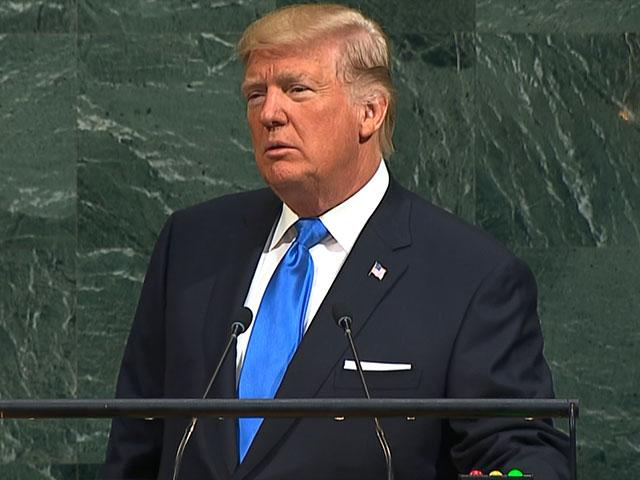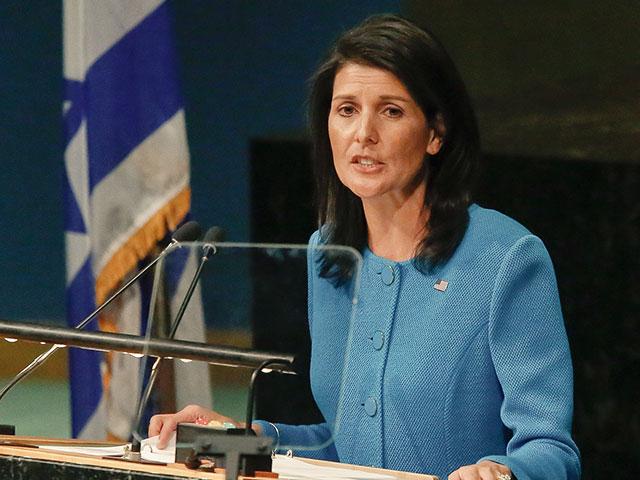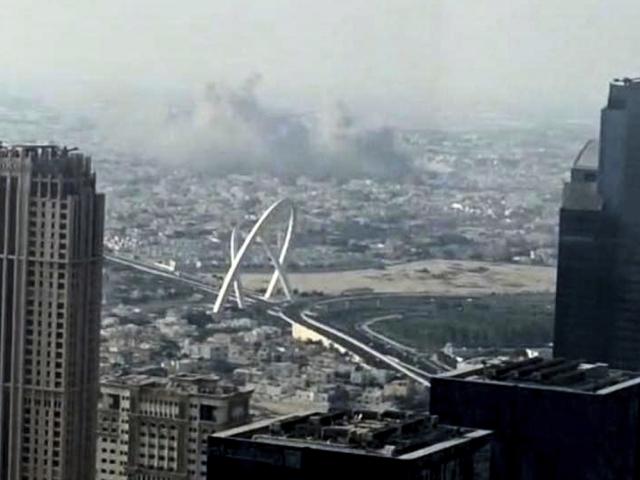President Donald Trump used his first United Nations General Assembly address to warn North Korea of potential destruction if it doesn't give up its nuclear weapons program.
The speech was greeted in the U.N. chamber mostly with silence, as Trump castigated a succession of hostile regimes.
He first singled out North Korea, recounting its history of kidnapping, oppression, and missile and nuclear tests.
"Rocket Man is on a suicide mission for himself," President Trump said, referring to North Korean dictator Kim Jong-Un.
North Korea's ambassador was in the front row but was seen leaving before President Trump took the stage.
While President Trump praised recent U.N. sanctions against Pyongyang, he emphasized his administration would take action if Kim Jong-Un continues to threaten the United States and destabilize East Asia.
"No nation on Earth has an interest in seeing this band of criminals arm itself with nuclear weapons and missiles." Trump said. He added, "The United States has great strength and patience but if its forced to defend itself or its allies we will have no choice to totally destroy North Korea."
Senior editor for the Washington Free Beacon, Bill Gertz says it was a strong speech.
"I don't think I've ever heard a President threaten to destroy another country," he said.
Gertz wrote several books including 'iWar: War and Peace in the Information Age', he believes North Korea has already proven sanctions are ineffective. His solution is using information warfare.
"That's the idea of getting the country wired up," Gertz said. He adds, "Instead of imposing more sanctions which haven't worked. Let's loosen sanctions on telecommunications infrastructure. Let's get the country wired up and then let's flood it with real truthful information about that regime."
Meanwhile, Defense Secretary James Mattis backed up U.N. Ambassador Nikki Haley's statements by telling reporters Monday the U.S. is ready to take care of the situation.
Secretary Mattis said, "Ambassador Haley is correct. There are many military options, in concert with our allies that we will take to defend our allies and our own interests."
Mattis said there are possible military options that would not create a grave risk to Seoul, but didn't elaborate. At just 35 miles from North Korean border, Seoul lies well within artillery range.
Beyond other weapons, North Korea is also believed to have a sizable chemical and biological arsenal. The secretary did explain why the U.S. hasn't shot down any North Korean missiles.
Mattis said, "The bottom line is that, when the missiles -- were they to be a threat, whether it be to U.S. territory, Guam, obviously Japan -- Japan's territory, that would elicit a different response from us."
The secretary of Defense wouldn't say any more about the military plans, but did confirm that he discussed with his South Korean counterpart the idea of introducing nuclear weapons to the Korean Peninsula. He would not confirm if that was one of the options under consideration.
The president is holding a trilateral meeting Wednesday with the prime minister of Japan and the South Korean president to discuss the situation.
Did you know?
God is everywhere—even in the news. That’s why we view every news story through the lens of faith. We are committed to delivering quality independent Christian journalism you can trust. But it takes a lot of hard work, time, and money to do what we do. Help us continue to be a voice for truth in the media by supporting CBN News for as little as $1.










 Support CBN News
Support CBN News









